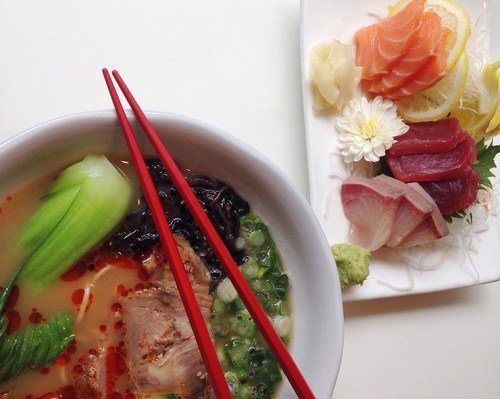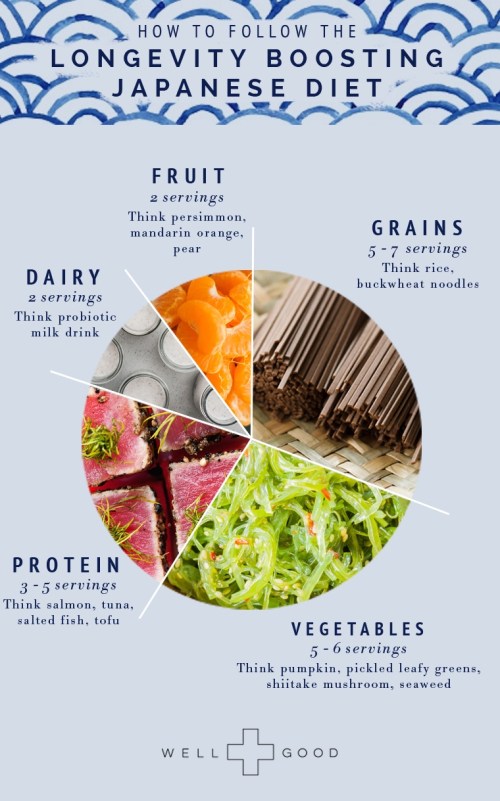Is the Japanese diet the new Mediterranean diet?
A massive 15-year study shows that the fish- and plant-heavy diet recommended by the Japanese government lowers mortality rates.

Pass the pickled veggies and sashimi, please!
That’s what people are eating in Japan, and it’s helping them live longer. A new, massive study—which followed nearly 80,000 people over 15 years—reveals that people who adhered to Japan’s governmental dietary guidelines had a 15 percent lower mortality rate. And it may be because of their fish-, and plant-heavy diets, Time reports.
On average, Japanese women have a life expectancy of 87 years, and Japanese men are expected to live to be around 80. In fact, Japanese women have the greatest longevity in the world, Time reports.
Why are they living longer than anyone else?
Unlike the US recommended diet, Japan’s food guidelines recommend 5–7 servings of grains; 5–6 servings of vegetables; 3–5 servings of fish, meat, or protein; 2 servings of milk products; 2 servings of fruit; and snacks and alcohol in moderation. (And many of the participants, particularly the women, regularly drank green tea.)
If this all sounds familiar, the guidelines are similar to the Mediterranean Diet, which is heavy on fruits, veggies, healthy fats, and nuts—and has also been shown to improve longevity. And while their guidelines don’t explicitly recommend fermented foods, the Japanese certainly consume a lot of gut-friendly ingredients (from miso to umeboshi plums).
Meanwhile, 87 percent of Americans don’t eat their recommended amount of vegetables, which is just 2.5 cups per day. The US government recommends 3 cups of dairy per day, 2 cups of fruit, 2 tablespoons of oils, 6 ounces of grains, and 5.5 ounces of protein.
Green tea-themed Thirsty Thursday, anyone?

When it comes to green tea, matcha is the most beloved right now. But it’s more than just something to sip: Here are 33 ways to enjoy it outside of your teacup.
Sign Up for Our Daily Newsletter
Get all the latest in wellness, trends, food, fitness, beauty, and more delivered right to your inbox.
Got it, you've been added to our email list.










